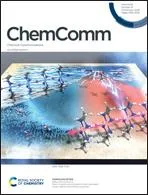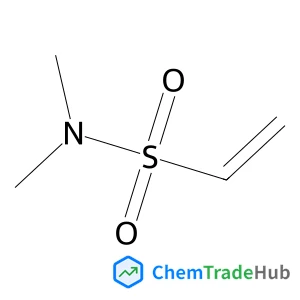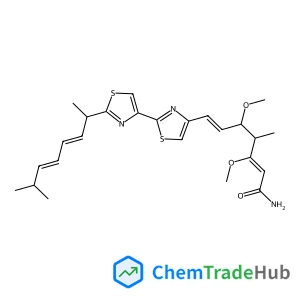An improved fluorescent protein-based expression reporter system that utilizes bioluminescence resonance energy transfer and peptide-assisted complementation
文献信息
Akira Takai, Keiko Yoshizawa
Fluorescent protein-based reporter systems are used to track gene expression in cells. Here, we propose a modified bioluminescence resonance energy transfer (BRET) reporter as a maturation-less reporter that utilizes a peptide-assisted complementation strategy. Using effective dimerized peptides obtained from library–versus–library screening with more than 4000 candidates, rapid activation of the reporter was achieved.
相关文献
IF 6.222
Facile room-temperature growth of nanostructured CuBi2O4 for selective electrochemical reforming and photoelectrochemical hydrogen evolution reactionsIF 6.367
Novel aqueous amine looping approach for the direct capture, conversion and storage of CO2 to produce magnesium carbonateIF 6.367
Microscopic insights into long-range 1D ordering in a dense semi-disordered molecular overlayerIF 6.222
Pulsed laser rusted stainless steel: a robust electrode material applied for energy storage and generation applicationsIF 6.367
Electrocatalytic cleavage of lignin model dimers using ruthenium supported on activated carbon clothIF 6.367
Back coverIF 6.222
From zinco(ii) arsaketenes to silylene-stabilised zinco arsinidene complexesIF 6.222
Ether-functionalization of monoethanolamine (MEA) for reversible CO2 capture under solvent-free conditions with high-capacity and low-viscosityIF 6.367
Non-aqueous neptunium and plutonium redox behaviour in THF – access to a rare Np(iii) synthetic precursorIF 6.222
来源期刊
Chemical Communications

ChemComm publishes urgent research which is of outstanding significance and interest to experts in the field, while also appealing to the journal’s broad chemistry readership. Our communication format is ideally suited to short, urgent studies that are of such importance that they require accelerated publication. Our scope covers all topics in chemistry, and research at the interface of chemistry and other disciplines (such as materials science, nanoscience, physics, engineering and biology) where there is a significant novelty in the chemistry aspects. Major topic areas covered include: Analytical Chemistry Catalysis Chemical Biology and medicinal chemistry Computational Chemistry and Machine Learning Energy and sustainable chemistry Environmental Chemistry Green Chemistry Inorganic Chemistry Materials Chemistry Nanoscience Organic Chemistry Physical Chemistry Polymer Chemistry Supramolecular Chemistry
推荐供应商
 济南信立业化工有限公司
济南信立业化工有限公司 调查社
调查社 艾尔沃德欧洲有限公司
艾尔沃德欧洲有限公司 Systec GmbH&Co.KG
Systec GmbH&Co.KG 江西拓昊福生物科技有限公司
江西拓昊福生物科技有限公司 石家庄祥盛建材有限公司
石家庄祥盛建材有限公司 Variati & Co. S.p.a.
Variati & Co. S.p.a. TKT-Kunstststoff-Technik GmbH
TKT-Kunstststoff-Technik GmbH 东莞市科瑞达化工科技有限公司
东莞市科瑞达化工科技有限公司 Luigs & Neumann Feinmechanik und Elektrotechnik GmbH
Luigs & Neumann Feinmechanik und Elektrotechnik GmbH












![72050-71-6 - 2-基]-2,3-二羟箕-10,13-二甲箕-1,2,3,4,5,7,8,9,11,12,14,15,16,17-十四箐环戊烯并[a]菲-6 72050-71-6 - 2-基]-2,3-二羟箕-10,13-二甲箕-1,2,3,4,5,7,8,9,11,12,14,15,16,17-十四箐环戊烯并[a]菲-6](/structs/720/72050-71-6-6651.webp)

